Fact Check
Fact-Checking Claims Made About Oklahoma’s Lawsuit Against Tyson Foods
Food•5 min read
Perspective
The second they entered Excelsior Hog Farm, all 49 Meat the Victims activists knew they would likely face criminal charges. They also knew that they had a moral responsibility to the animals suffering inside.
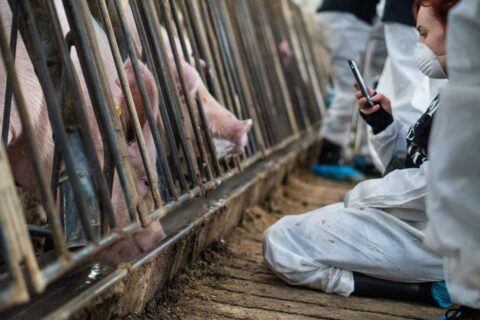
Perspective • Food • Industry

Words by Matthew Zampa
One month after PETA released chilling footage from Excelsior Hog Farm in Abbotsford, British Columbia, documenting the farm’s animal abuse, the B.C. Society for the Prevention of Cruelty to Animals (B.C. SPCA) said it will not be pursuing criminal charges against the farm because the organization said they cannot verify who shot the “troubling” footage. While it is alleged to have been shot at Excelsior Hog Farm, whoever filmed it has yet to come forward. Since recording the conditions at factory farms is a crime, this should not come as a surprise.
The footage shows mother pigs and piglets kept in tiny crates where they are unable to move or to care for each other properly. In some cases, piglets may die right in front of their mother’s face, without the mother being able to do anything for her young. The surviving piglets would live among their dead and dying siblings. Injuries such as hernia, lacerations, and growths go untreated and continue to exacerbate the suffering of these animals. Some cannot walk on the slatted floors, unnatural for any animal to live on, and die slowly where they collapse. Dead pigs were found rotting in their pens.
“Simply having a video clip is not enough to build a case for recommendation of charges,” Lorie Chortyk, spokesperson for the B.C. SPCA, told CBC.
In the wake of the video’s release, at 6 a.m. on Sunday, April 28, a group of 65 animal activists attempted to enter Excelsior Hog Farm. According to Meat the Victims, the organization behind the protest, “This is a standard representation of factory farming here in Canada. This action is not about this one facility, or a call for better animal welfare standards, but rather a call to end the inherently violent animal agriculture industry entirely. Our message is simple; ‘animals are here with us, not for us.’”
The public has a right to know the truth about the animal agriculture industry where cruelty is not the exception but the rule. Still, activists risk facing criminal charges every time they step foot on a factory farm.
About a month ago, nearly 200 animal rights activists gathered outside of an industry-leading pig farm in an industry-leading country: to bring awareness to the crimes of animal agriculture. On the back of the shirts worn by the demonstrators, Meat the Victims adorned this simple truth, “One has a moral responsibility to disobey unjust laws.”
Footage from the protest shows activists sprinting past the “No Trespassing” signs and attempting to gain access to the pig farm. In doing so, they put themselves at certain risk of facing criminal trespassing and breaking and entering charges.
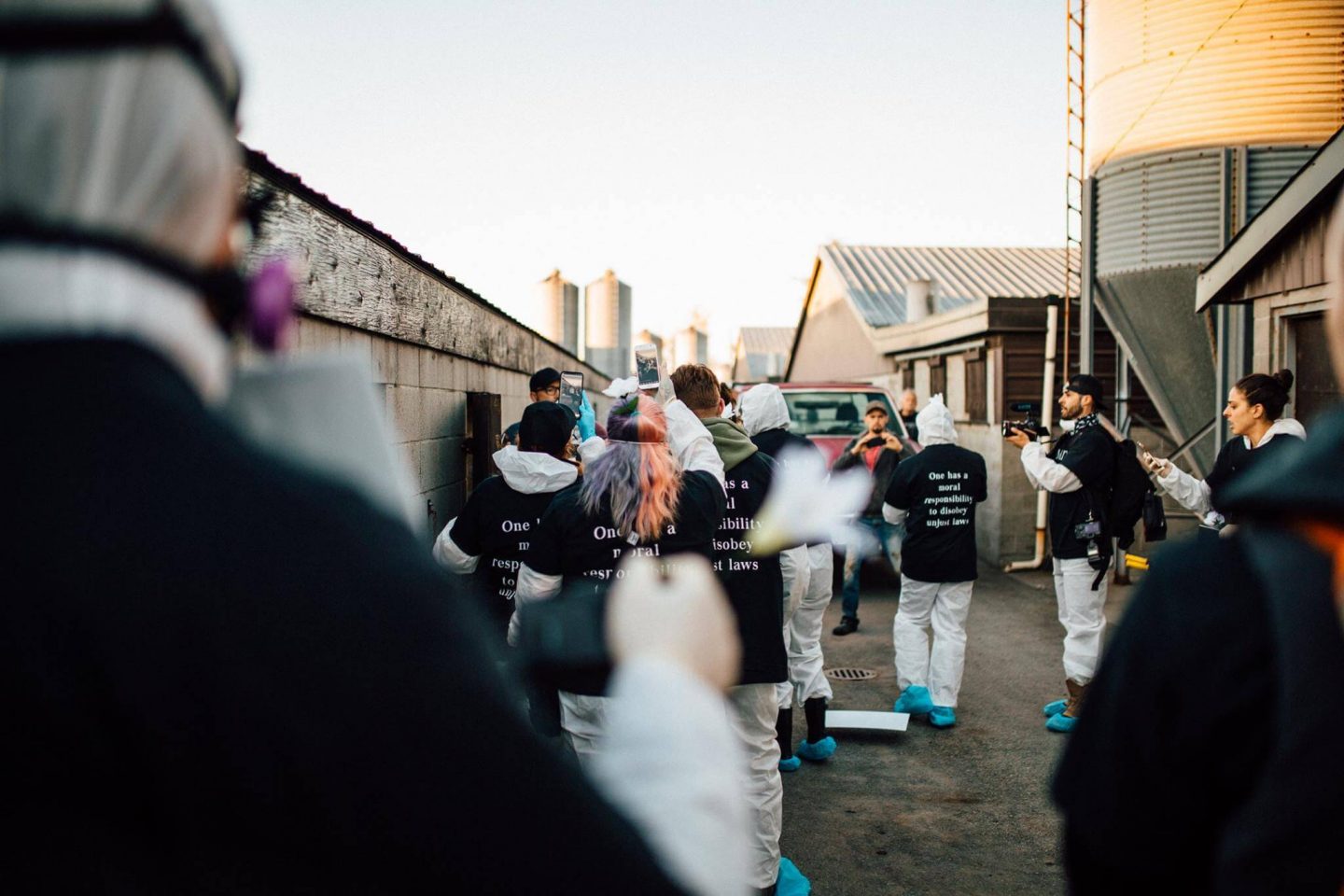
“That’s okay,” said Amy Soranno, a spokesperson for the group of activists who made it inside the facility. “We’re challenging the law. That’s what we came here to do.”
Soranno was later taken into custody. Police confiscated her phone, suspecting that Soranno taking undercover footage of the farm, an illegal activity in British Columbia and just about every industrial animal farming operation in the developed world, with she unlocked for them, according to a report from the Intercept.
The rest of the activists walked peacefully off the property, many with tears streaming down their faces, holding peace signs and white flowers in their hands. Soranno now faces criminal charges of mischief and breaking and entering. The 49 other activists that entered Excelsior Hog Farm in April have agreed to appear in court and could face charges of criminal mischief, breaking and entering, or trespassing.
What happened at Excelsior Hog Farm is not the exception but the rule. On factory farms around the world, cruelty is unavoidable standard practice, and even when activists document the industry’s standard practices, they often remain at fault. Industry-favoring ag-gag laws continue to protect farming operations from activists and journalists, and shield the public from the truth. At Excelsior Hog Farm, Meat the Victims activists were able to bargain with authorities with some degree of success, demanding that the farmers let accredited media tour the facility.
The media tour was delayed by three hours while the farm cleaned-up specific areas and decided who would be allowed in. Throughout this delay, activists begged the farm to help the most distressed animals. They found that the pigs’ water trough was empty upon their arrival and pleaded with the farmers to give the pigs water. Pregnant pigs were dehydrated, desperately nudging their trough and frothing at the mouth.
In some cases, piglets die right in front of their mother’s face, without the mother being able to do anything for her young.
The farmers agreed to give the pigs water, not because they had to, legally, but because activists demanded it.
Eventually, five out of the 11 news outlets were approved. The Intercept and CTV News were among the group who were removed from the tour. The rest of the media tour went roughly as the Pork Producers Association wanted it to go, under the supervision of local law enforcement.
Excelsior Hog Farm is owned and operated by a board member of the British Columbia Pork Producers Association (BCPPA), of which Excelsior is considered an industry leader. The farm is located in Abbotsford, British Columbia, a community that earns a higher dollar per acre of agricultural land than any other city in Canada. More than 1,000 pigs are currently being held at the facility, which is on the lower end in terms of the size of most hog farming operations.
“This just goes to show that there is no right way to do the wrong thing,” stated a Meat the Victims activist. “This farm is as good as it gets.” That is a sobering, chilling realization.
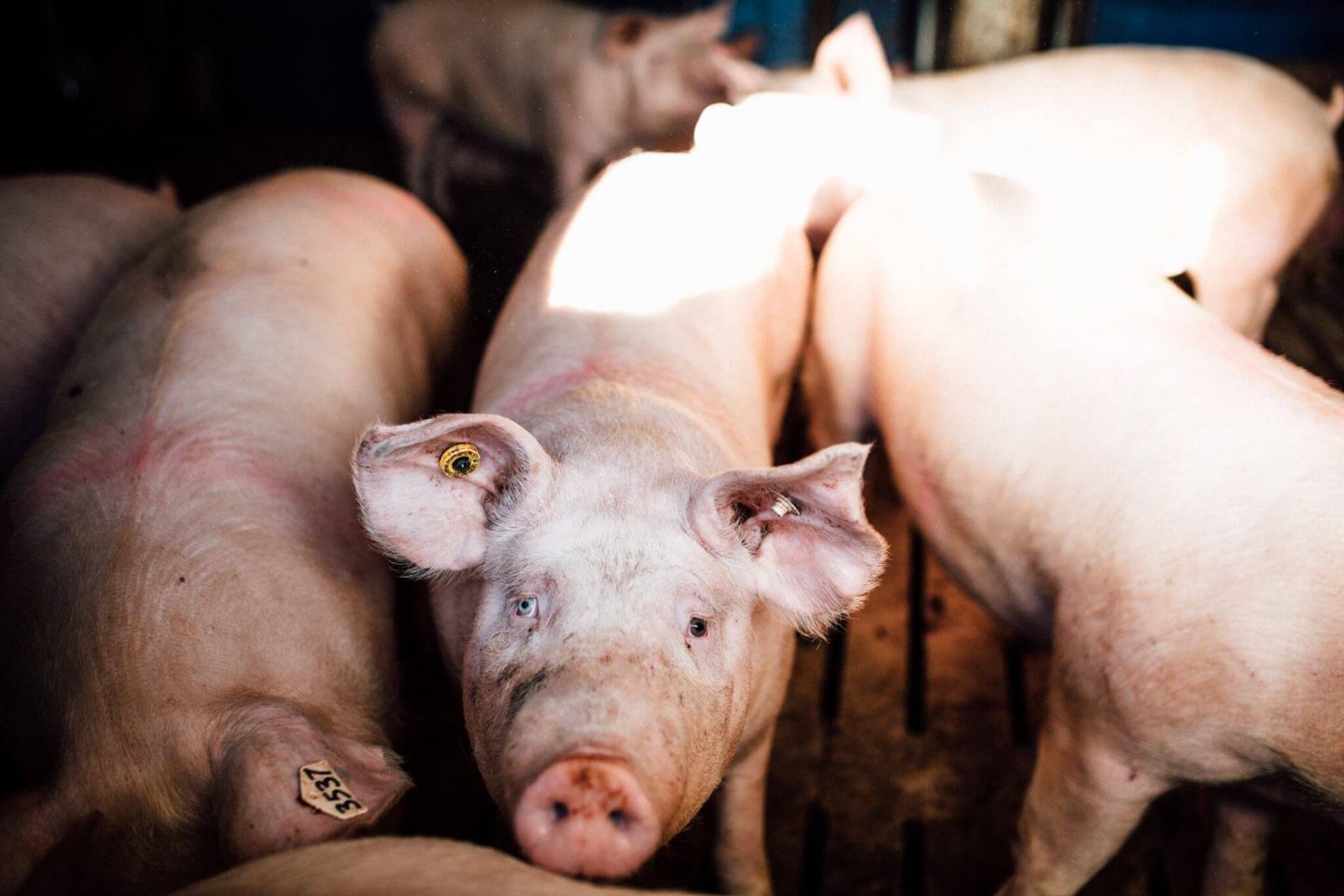
In a statement provided on May 8, the BCPPA said, “We will continue to support our farmers as they do what they do every day, lawfully operating their businesses. We expect that those who break the law will be held accountable for their illegal actions.”
That’s one way to look at Excelsior Hog Farm. But if you ask an activist on the other side, they will tell you that what farmers do every day is not lawful and should not be allowed to continue. Excelsior Hog Farm is certainly not special in this regard. The farm is as good as it gets, and there are no good pig farms if we are to believe “good” means that no animals are suffering, just like there are no good beef or good dairy or good poultry farms. That is precisely why 200 people showed up to demonstrate outside a 1,000-pig farm in Canada last month, and it’s why activists continue to show up outside animal farming facilities around the world—because animals are suffering and it’s happening outside the law.
In the U.S., the average medium-large factory hog farm holds about 2,500 pigs. For factory dairy cow farms, that number is a little lower, somewhere around 700 cows. Broiler chickens are by far the most densely farmed animals, often with up to 600,000 birds held in one facility. Globally, 90% of farmed animals live on factory farms like these, where animals live and die against their will before being processed and sold as pieces of meat.
“Despite their daunting numbers, and the severity of the abuse they suffer, farmed animals receive little to no protections by the legal system,” according to the Animal Legal Defense Fund (ALDF), a San-Francisco based nonprofit that has garnered support from thousands of attorneys and over 200,000 supporters over the 50 years. As it stands, there are currently no federal laws that govern the condition in which farmed animals are raised and most state anti-cruelty laws exempt farmed animals.
According to ALDF, the vast majority of factory farming operations do nothing to protect their animals from the horrific realities of animal agriculture. Farmed animals raised for meat, dairy, and egg industries are among the most abused in the U.S. Investigations and industry whistleblowers have revealed their abuses on farms and in slaughterhouses so horrific, most people, including the farmers themselves, cannot even bear to witness them.
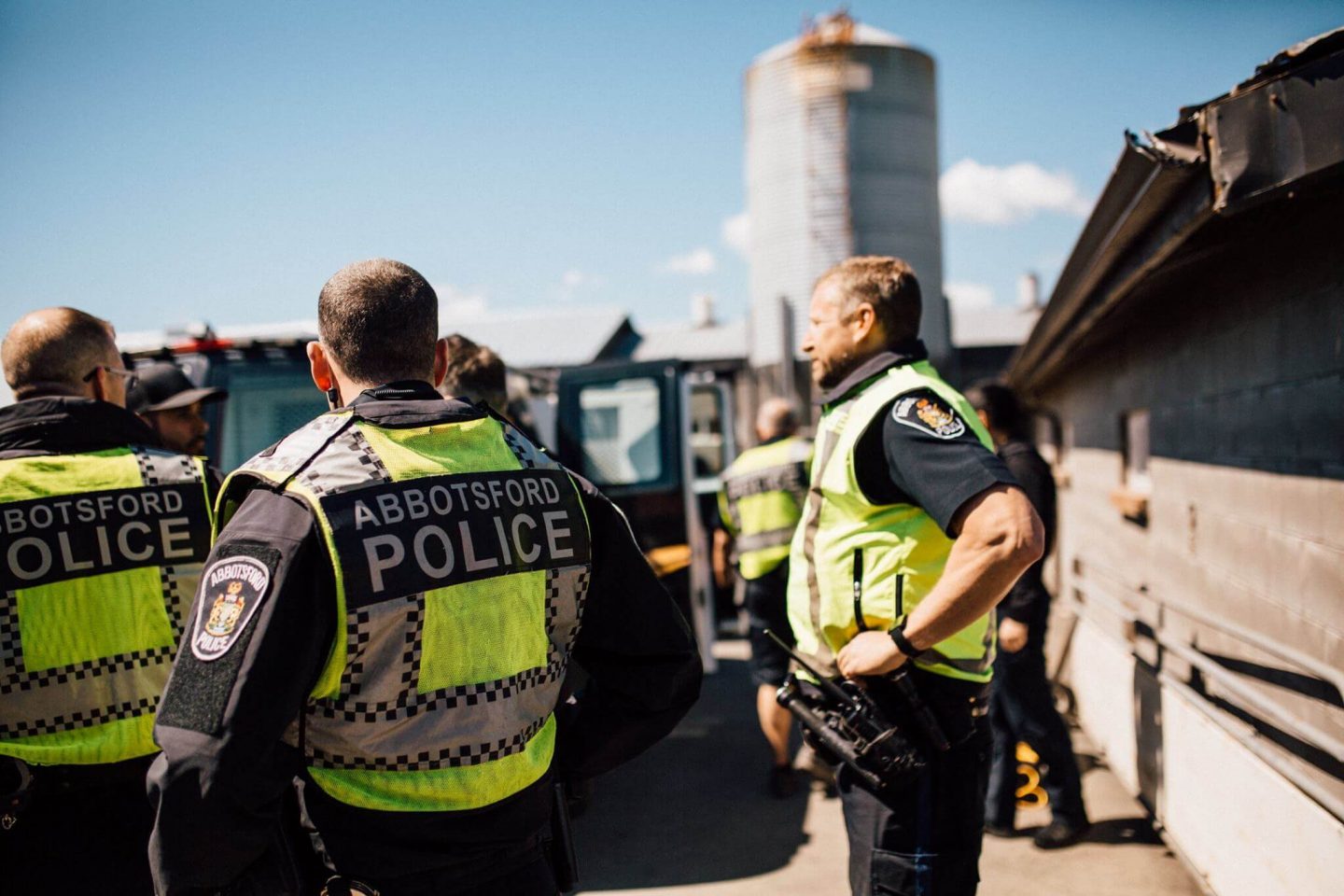
Most animal cruelty is not addressed by the law, and much if not all of that cruelty consists of standard practices made commonplace within the animal agriculture industry by the lack of proper legal protections for farmed animals and the activists risking criminal charges to protect them.
On the majority of factory farms in the U.S. and in Canada, it is illegal to film without the farmer’s consent. That means that even when animal abuse is present like it was at Excelsior Hog Farm, and the animal abuse is well-documented like it was at Excelsior Hog Farm, evidence of animal abuse is often thrown out like it was at Excelsior Hog Farm. Authorities are left with one option: take no legal action against the farm and instead, arrest the activists who exposed the cruelty inside.
The legal precedents for breaking into farms and documenting animal cruelty are referred to as Ag-Gag laws, which punish would-be whistleblowers and undercover activists for recording footage of animal agriculture operations. They are specifically designed to prevent the public from learning about the standard practices on factory farms.
About 26 states considered adopting Ag-Gag laws from 2010-2015, but only nine—Idaho, Iowa, Kansas, Missouri, Montana, North Carolina, Utah, and Wyoming—passed legislation.
“It should never be a crime to tell the story of an animal who is being abused and killed, even if it’s for food.”
Ag-Gag laws differ by state, but what they have in common is what’s important: they criminalize undercover reporting of systemic animal cruelty in the animal agriculture industry. States with more livestock farming like Montana, North Dakota, Kansas, Missouri, Arkansas, and North Carolina are some of the worst for animals and activists because, more often than not, the industry’s lack of transparency that footage from activists would otherwise provide results in more instances animal cruelty, not less. At Excelsior Hog Farm, a sign posted inside read, “What happens in the barn, stays in the barn,” an explicit reminder of the industry’s aversion to transparency.
That lack of transparency is exactly what the attorneys at ALDF are fighting. In 2013, ALDF filed the first Ag-Gag lawsuit against the state of Utah after animal activist Amy Meyer videotaped a live cow, too sick to walk, being pushed by a front-loader at Dale T. Smith Meatpacking Company in Draper, UT. Meyer became the first person in the nation to be prosecuted under an Ag-Gag law.
“These unconstitutional laws will fall like dominoes,” said ALDF’s executive director Stephen Wells. And they did. The state dropped its charges against Meyer amid public outcry after she was taken into custody by Draper City police.
“I was shocked when I was the one charged with a crime instead of that animal’s abusers,” Meyer told NPR after the court ruled in her favor. “It should never be a crime to tell the story of an animal who is being abused and killed, even if it’s for food.”
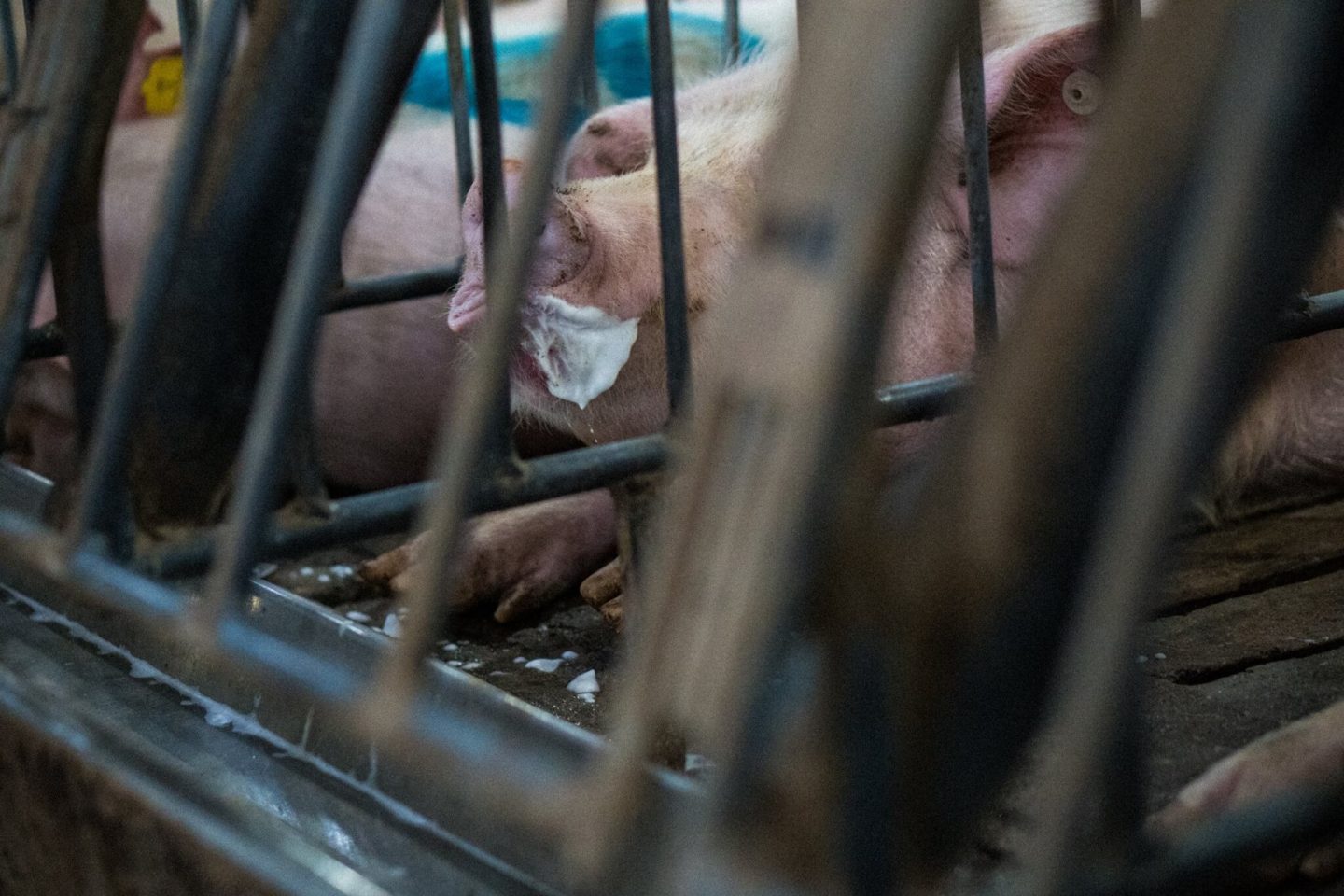
Four years later, the U.S. District Court of Utah declared the state’s Ag-Gag statute unconstitutional in violation of the First Amendment right to free speech and fundamentally, to hold the agriculture industry accountable. The organization successfully challenged and stuck down Ag-Gag statutes in Idaho in 2018, after the state appealed an earlier ruling, and in Iowa, home to the most factory-farmed district in the country, in 2019.
“Ag-Gag laws are flagrant attempts to hide animal cruelty from the American people,” said Wells. “They unfairly target activists trying to serve the public’s interest.”
Activists are fighting an uphill battle to give farmed animals protections under the law. As they stand, Ag-Gag laws provide a stark reminder that farm law is still a one-sided, industry-dominated conversation. Outside the U.S., the story is frighteningly similar. Australia is home to some of the most entrenched Ag-Gag laws in the world, but lately, activists have proven that they will not let pro-ag politics get in the way of animal rights.
In April, hundreds of animal activists gathered in downtown Melbourne, Australia, blocking a majority intersection in the city’s downtown center. Police arrested 39 activists, who blocked traffic during the city’s busiest hours, part of a wave of action in three Australian states, while others targets abattoirs in the middle of the night to protest the cruelty to animals on factory farms. Most of the activists, including two 17-year-olds and one 15-year-old, are being charged with obstructing police and could face up to five years in jail.
Leading up to the demonstrations in Melbourne, tensions between animal activists and Australian farmers were high. In January, animal rights group AussieFarms launched a comprehensive, interactive map detailing the exact location of factory farms, slaughterhouses, and other animal exploitation facilities across the country.
Fearing the map would encourage direct action–the term used when activists show up at farms they saw on the Internet to demonstrate, in some cases halting operations for as long as they can while rescuing as many animals as they can–Prime Minister Morrison and the Australian government proposed a new law aimed specifically at AussieFarms. Under the new law, people who encourage trespassers by posting the location of an agricultural business on the Internet could face up to a year in prison if found guilty.
One month after the AussieFarms map was released, a confrontation between Western Australian dairy farmer Jason Parravicini and two Direct Action Everywhere (DxE) activists at a farm in Harvey got heated. Parravicini approached the activists’ car, demanding that they stop filming his farm. He then left the car window and went inside the house to fetch a shotgun. He fired two rounds in the air that he alleges were meant to scare off any “vermin” that might be threatening his animals. Needless to say, no charges were filed against the farmer for threatening the activists.
Back in the U.S., DxE activists broke into a chicken plant near Petaluma, CA, which led to the arrest of 67 activists. It was the third largest protest organized in Sonoma County by the group last year. Four activists now face felony charges in connection with the series of nonviolent actions. They all pled not guilty.
These are by no means the first nor will they be the last instances of nonviolent protest on factory farms that result in legal action. In 2004, Adam Durand and two other investigators documented unspeakable animal cruelty at New York State’s largest egg farm, considered to be one of the more “humane” egg farms in the state. Durand was convicted of trespassing and served one month of his six-month jail sentence.
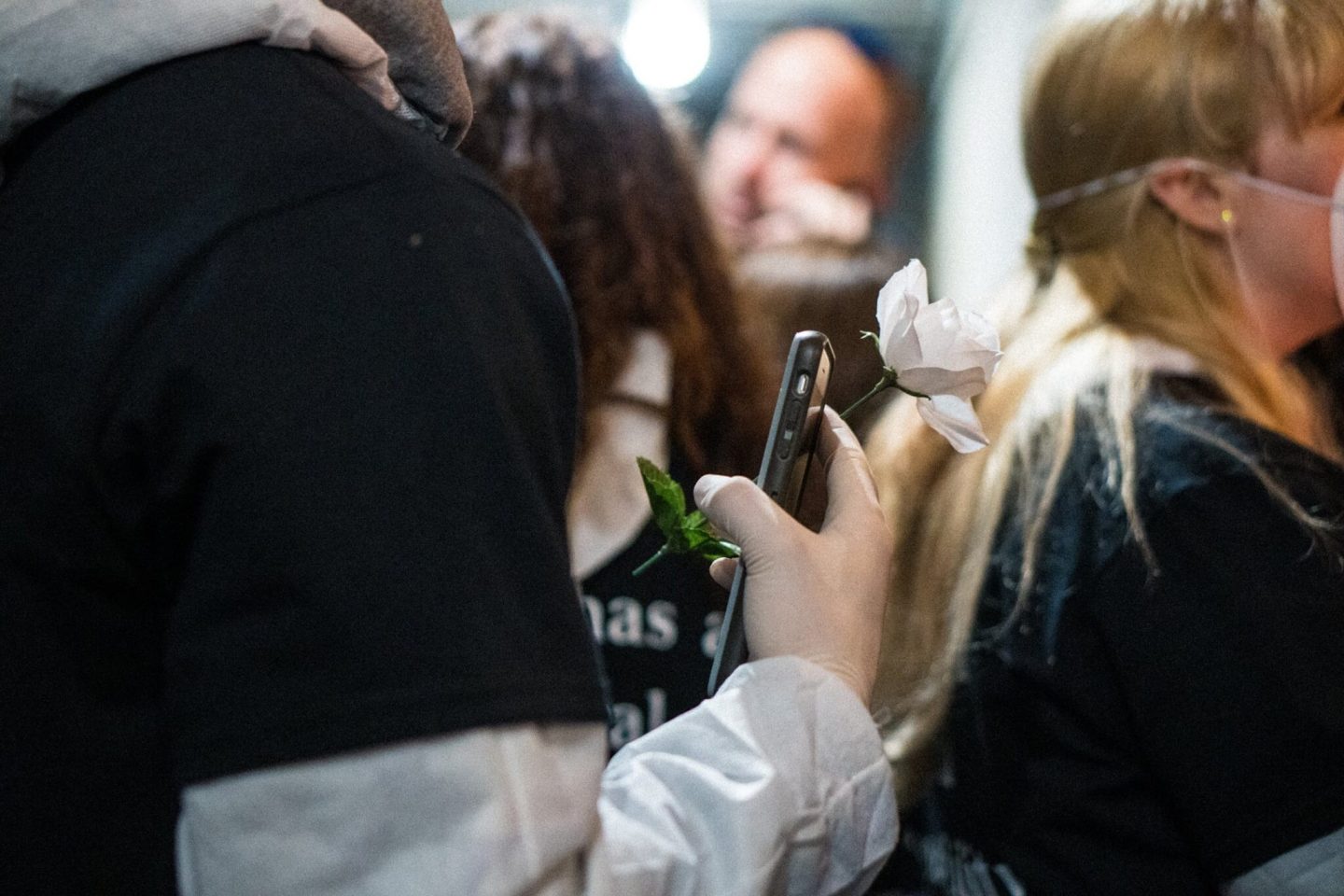
DxE Co-Founder and Organizer Wayne Hsiung is one of the activists being charged in connection to the Petaluma demonstration. He faces a number of other charges, including conspiracy, livestock theft, burglary, and engaging in a pattern of illegal activity, all of which are felonies, for rescuing sick and dying animals from factory farms.
Over the past 20 years, the animal rights movement has gained momentum and with that, Durand, Hsiung, and countless other activists have been increasingly willing to risk facing criminal charges for illegally breaking into and entering factory farms. Inside, they document the conditions with precise detail, substantiating the claims that cruelty is standard practice on factory farms, even on so-called “humane” farms. Then, to protect their livelihoods, farmers retaliate, pressing charges against the activists. This comes at a cost, though, one animals and activists pay for heavily.
Since animal rights organizations began raising questions about the treatment of animals in the agriculture industry, factory farmers hid the cruelty inherent to the way they do business behind an industry-dominated legal system that protects farmers rights and not animal rights. When all is said and done, animals are left to suffer, and the ones directly responsible for the horrific acts of animal cruelty taking place inside factory farms get off scot-free.
According to PEW Trusts, multiple states have adopted amendments in the past few years that “enshrined into their constitutions the right of farmers and ranchers to use current practices and technology.” Legislatures in many states, including Indiana, Mississippi, Nebraska, and West Virginia, proposed similar amendments that would effectively legalize animal cruelty.
Elsewhere, Ag-Gag laws force those documenting the animal abuse to come forward and reveal themselves within 24 or 48 hours of the first recorded incident. This prevents animal activists and journalists from exposing instances of animal cruelty as “systemic, routine, and inherent in the factory farming industry—rather than as isolated incidents that occurred on a single day,” says PETA.
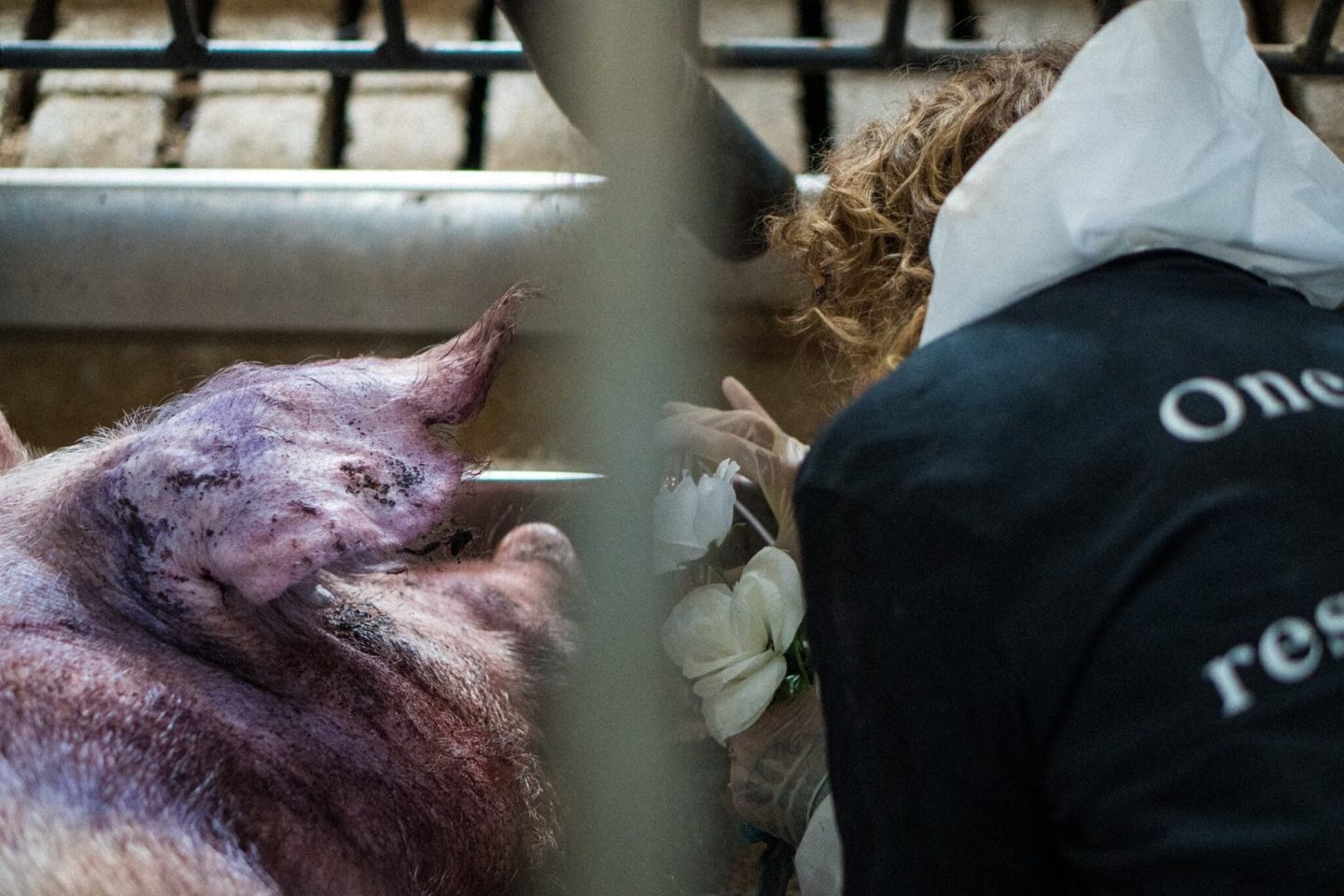
In 2008, before stricter Ag-Gag laws hit the books, PETA took three months to investigate the particularly heinous acts of animal abuse at one of Iowa’s 6,000 hog farms. The evidence collected led to the state’s first conviction of animal abuse and neglect of factory-farmed pigs.
Today, animal activists are under attack. Little victories like PETA’s groundbreaking investigation are being criminalized by industry-favoring laws. In many countries, direct action on factory farms is illegal and increasingly unsafe.
Even when activists present damning evidence from one farm, the rest of the industry says, “Not me.” Take this incident at a Costco supplier earlier this year for example.
In March, West Virginia roofer Paul Picklesimer was on the job doing work inside a chicken facility, where he said he regularly saw animals suffering. He decided to start recording—birds clawing at their cages, covered in feces and blood, suffering immensely—and because he came forward and admitted to recording the video, Picklesimer is being sued $330,000 in restitution for exposing the animal cruelty he witnessed inside that chicken farm.
“Ag-gag” does not exist in West Virginia in the traditional sense. The state struck down the legislation years ago, deeming it unconstitutional because it violated undercover investigators and activists’ right to free speech. But removing the gag is only half the battle. To successfully protect farm animals from cruelty, legislators will have to sign animal rights, not farmers rights, into law.
Picklesimer found that out the hard way.